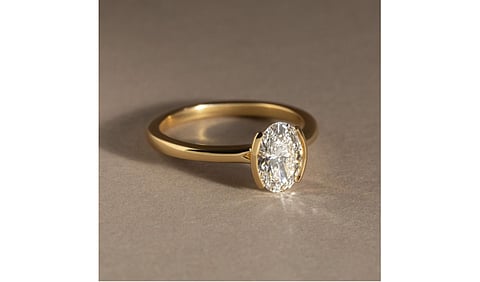When to See a Doctor
You need to contact a dermatologist when taking safety practices fails to improve your symptoms. People need either stronger medication or tests with an expert doctor to find the right metal triggering their reactions.
Alternative Jewelry Options for Sensitive Skin
People with long-term metal sensitivity can replace metal jewelry with fashionable and secure alternatives. People commonly choose silicone rings because these flexible options interact safely with any activity. The non-allergic ceramic rings give you a hypoallergenic choice alongside their beautiful design. Having a bezel set oval engagement ring made with titanium or platinum reduces irritation without losing the appeal of classic jewelry.
Lifestyle Changes to Reduce Skin Allergies
Simple everyday steps alongside picking appropriate jewelry can minimize your reaction to allergic items. Regularly applying fragrance-free lotions to your hands will build a protective layer that stops your skin from coming into contact with the ring surface. Limit your time in water when performing activities like swimming and dishwashing to decrease ring-related discomfort. Taking care of your sensitive skin combined with the right jewelry picks allows people to wear their rings without feeling irritated.
Conclusion
A diamond ring should make you happy rather than painful. Rather than suffer from skin allergies cryptoits is important to study both your ring's metal type and its setting. To avoid skin sensitivity when wearing an engagement ring the bezel set oval engagement ring with hypoallergenic materials is an ideal choice. Taking good care of your skin and making smart options will let you enjoy your ring without problems.


